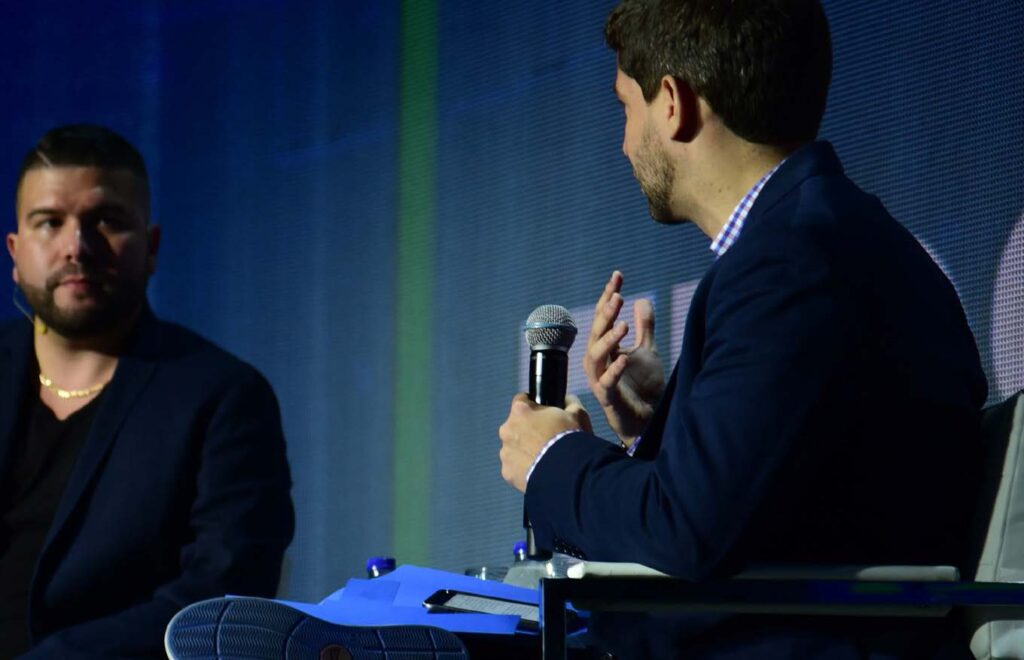Speech and Debate at high schools and universities in the United States can still conjure up images of overly studious, even geeky, straight white males in competition.
But this stereotype is increasingly outdated, especially as more students from first-generation Latin American immigrant communities participate in training and competitions. Nationally, Latin American students now make up a quarter of all participants in Speech and Debate, also called Forensics.
Beyond mere numbers in terms of representation, these students advocate for messages that are important to them, foregrounding topics that resonate with Latin American contexts.
In Florida, students have debated topics ranging from mental health provision for Hispanic communities, cases of abuse of migrant workers, and racial profiling.
Students must master techniques of presenting compelling arguments regarding highly sensitive, current concerns in Forensics.
It is not uncommon for past students to return as mentors or coaches to help cultivate the next generation of younger debaters. Fernando Morales, a television actor in Miami, is one such participant-turned-coach.
“Forensics always gave me the light I wanted to advocate and the spotlight I always wanted,” he says. For many Latinx students like Fernando, Forensics has been a creative outlet and a career springboard —so much more than just a recreational hobby.
Fernando graduated from the University of Texas at Austin where he and his friend, Lario Albarrán, were the first two Latinos to participate in Interpretation Events for Forensics in 2012.
Interpretation Events require participants to select a piece of World Literature or American Literature and rewrite it as a ten-minute performance that advocates a message of importance to them. It can be a daunting task to find a piece of literature suitable for this type of re-interpretation.
Fernando’s advice to students when selecting a literary text is to avoid trying to impose a message on the literature, but rather to draw out a message from a text they already find appealing and captivating.
This is, in fact, the approach that allowed Fernando and Lario to pioneer the use of Arthur Miller’s Death of a Salesman for an interpretation event, when they rewrote Miller’s famous play as a dialogue between a Mexican immigrant father and son.
Their interpretation brought fresh, updated insights to bear on the American Dream in the twenty-first century and the working conditions of Mexicans in the United States.
On the practical side, Forensics helps students acquire and exercise skills in research, writing, and oral argumentation.
“I’ve learned that you can be at the top of your field, whether that be science, engineering, or law, but if you cannot communicate that knowledge, if you cannot share that expertise, it doesn’t matter,” says Gina Sanchez, who was a finalist for the National Speech and Debate Association 2018 Student of the Year.
Forensics allows students to hone these vital communication skills, which can take them to astronomical heights in national and international arenas. US Supreme Court Justice Sonia Sotomayor participated in the National Speech and Debate Association (NSDA) as a student, as did Yvanna Cancela and Victoria Suarez-Palomo when they were growing up in Miami and now serve as a Nevada State Senator and Vice President of Renovate America, respectively.
Beyond practical skills, for first-generation Latin American students in the US, in particular, Forensics can be an especially important venue for thinking through issues pertaining to their Latin American heritage, identity, and cultural representation.
Alongside the prevailing stereotypes of Forensics being the domain of white male students, there is also an emerging stereotype that Latin American students will present yet another story of immigration or related topics in their speeches. In reality, of course, Latin American subjects for Forensics are far more complex and varied, encompassing the diaspora, latinidad, and history.
Abel Rodriguez III, a graduate of the University of Kentucky and UCLA Law School, states that one of the steepest challenges for him within a predominately all white Forensics team was being comfortable with undertaking topics surrounding Latin American identity.
Abel notes, “It was so different going from doing speeches where you were told to be careful of doing identity pieces in high school in Florida because you didn’t know how they would be received to actually, my senior year [in college], I was doing those topics, told not to care about what judges might think.”
Abel says we are slowly making progress in this regard. After competing in Forensics for four years, Abel now practices law in Los Angeles and credits Forensics for setting him on the path to his present career.
For first-generation students in particular, Forensics can provide a valuable venue for educating others, including their own teammates, about the conditions and experiences they face. This is very much true for Ambar Reyes-Pérez, who grew up in Puerto Rico.
Ambar, a senior at the University of Central Florida, captains the university’s Speech and Debate Team. She says that Forensics has given her a creative outlet to share stories and messages that are truly important to her.
“My advice to fellow Latinx students is not to feel discouraged and to bring advocacy. Treat topics you are passionate about. If not, you will run out of steam in the middle of the season,” says Ambar.
If not for Forensics, she claims, she would not have gained opportunities to travel the country, all expenses paid, and to build the network and legacy she now has entering her second year as captain.
She says that one of the biggest accomplishments this activity has given her is being able to share messages that are dear to her about Puerto Rico, such as bilingual education. Equipped with skills in Forensics, she is now looking forward to law school.
Forensics gives many Latin American students purpose and proficiency in contexts where such students would traditionally have been anomalies. Participants like Fernando, Lario, Gina, Abel, and Ambar are amongst the pioneering Latin Americans in Forensic Speech, an oratory and persuasive art for all.
















